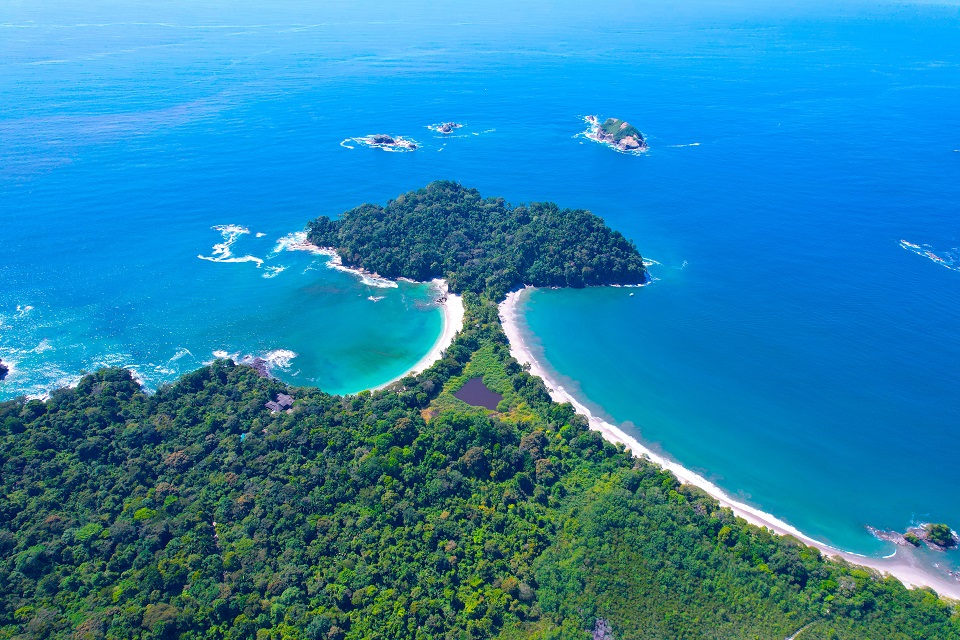The emerald heart of Central America, Costa Rica, pulsates with life, from its lush rainforests to its pristine beaches. A forerunner in the world of eco-tourism, this tropical paradise has long been the destination for travelers seeking a harmonious blend of adventure and sustainability. Costa Rica has set a gold standard for how nations can preserve their natural heritage while offering immersive and educational experiences for visitors.
The ‘Pura Vida’ (pure life) philosophy, a cultural touchstone in Costa Rica, reflects not just in its welcoming people but also in its approach to environmental conservation. Understanding how Costa Rica has managed to become a beacon of sustainable travel is instrumental for eco-tourists eager to make a difference with their travel choices.
Table of Contents
1. National Parks & Protected Areas
Over a quarter of Costa Rica’s land is dedicated to national parks, reserves, and wildlife refuges. These protected areas ensure that the country’s diverse flora and fauna can thrive. Monteverde Cloud Forest Reserve and Tortuguero National Park are just two shining examples where travelers can witness biodiversity at its best. From watching sea turtles hatch to hiking through ethereal cloud forests, the experiences are not just awe-inspiring but also educate visitors on the importance of conservation.
2. Eco-Lodges: Stay With A Conscience
One of the pillars of Costa Rica’s sustainable tourism is its range of eco-lodges. From luxury treehouses to rustic cabins, these lodgings are designed to have minimal impact on their surroundings. Solar power, rainwater harvesting, and farm-to-table dining are standard practices. By choosing such accommodations, tourists can ensure that their stay contributes to local economies and eco-friendly initiatives.
3. Local Communities: The Heart Of Sustainable Tourism
Travelers seeking authentic experiences will find them in the heart of Costa Rica’s local communities. Engaging with indigenous groups, learning about their traditions, and purchasing handcrafted goods directly from artisans not only enrich the tourist experience but also empower these communities. Supporting local economies is pivotal in sustainable travel, ensuring that the very essence of a place is preserved for future generations.
4. Adventures With Minimal Footprints
For thrill-seekers, Costa Rica offers adventures that align with eco-friendly principles. Whether it’s zip-lining over canopies, rafting through untamed rivers, or hiking up volcanoes, there’s no shortage of adrenaline-pumping activities. Many of these adventures are conducted by guides trained in eco-friendly practices. One excellent way to delve deep into these adventures is through Costa Rica guided tours. These curated experiences offer an in-depth look at Costa Rica’s natural wonders while ensuring that activities are conducted with the least environmental impact.
5. Renewable Energy: Powering The Future
Costa Rica’s commitment to sustainability isn’t just limited to tourism. The nation is a global leader in renewable energy. With a combination of hydroelectric, wind, and solar power, Costa Rica often runs entirely on renewable energy for extended periods. This dedication ensures that the country’s carbon footprint remains low, further enhancing its status as a sustainable travel destination.
6. Wildlife Conservation: A Proactive Approach
Costa Rica’s rich biodiversity is one of its main draws. However, this also means that it is a hotspot for poaching and illegal wildlife trade. Recognizing this, the country has put stringent measures in place. Rehabilitation centers and sanctuaries dot the landscape, ensuring that injured or rescued animals receive care and protection. Tourists can visit these centers to learn more about local wildlife and the challenges they face.
7. The Culinary Conservationist
Merging gastronomy with sustainability, Costa Rica offers a palate of organic and locally-sourced delicacies. From farm-to-table experiences to eco-friendly coffee plantations, travelers can indulge in Costa Rican flavors, knowing each bite supports local farmers and the nation’s commitment to sustainable practices, all while relishing the authentic taste of this tropical haven.
Conclusion
Costa Rica’s journey in sustainable travel serves as an inspiration to the world. It showcases that with the right vision and dedication, tourism can be a force for good. For those who wish to travel responsibly, to learn, and to be part of conservation initiatives, Costa Rica awaits with open arms, promising experiences that linger in memory long after the journey is over. The essence of ‘Pura Vida’ lies in harmony with nature, and in Costa Rica, travelers can live this philosophy in every step they take.



